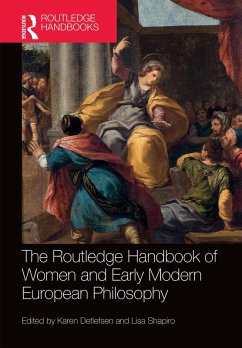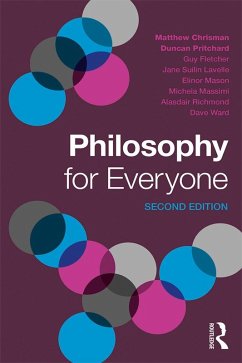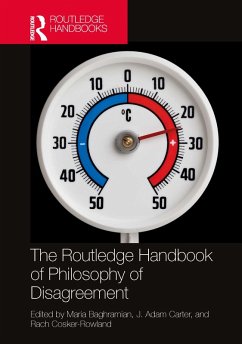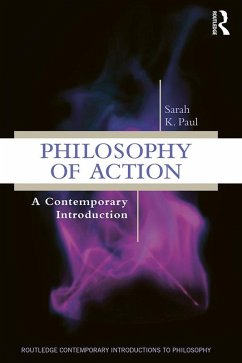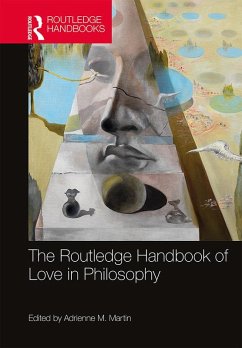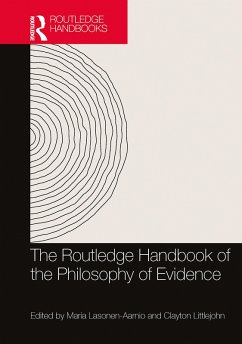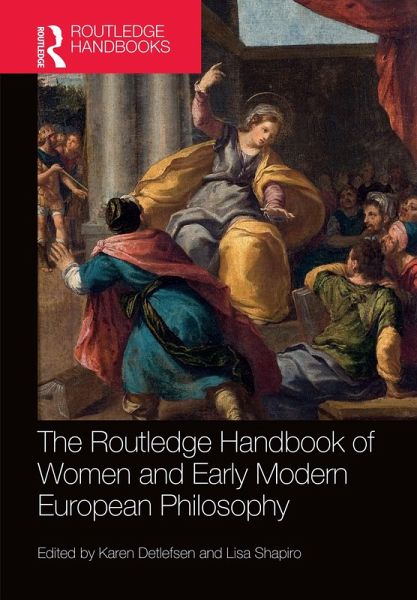
The Routledge Handbook of Women and Early Modern European Philosophy (eBook, ePUB)
Versandkostenfrei!
Sofort per Download lieferbar
43,95 €
inkl. MwSt.
Weitere Ausgaben:

PAYBACK Punkte
22 °P sammeln!
The Routledge Handbook of Women and Early Modern European Philosophy is an outstanding reference source for the wide range of philosophical contributions made by women writing in Europe from about 1560 to 1780. It shows the range of genres and methods used by women writing in these centuries in Europe, thus encouraging an expanded understanding of our historical canon. Comprising 46 chapters by a team of contributors from all over the globe, including early career researchers, the Handbook is divided into the following sections:I. Context II. Themes A. Metaphysics and Epistemology B. Natural P...
The Routledge Handbook of Women and Early Modern European Philosophy is an outstanding reference source for the wide range of philosophical contributions made by women writing in Europe from about 1560 to 1780. It shows the range of genres and methods used by women writing in these centuries in Europe, thus encouraging an expanded understanding of our historical canon. Comprising 46 chapters by a team of contributors from all over the globe, including early career researchers, the Handbook is divided into the following sections:
I. Context
II. Themes
A. Metaphysics and Epistemology
B. Natural Philosophy
C. Moral Philosophy
D. Social-Political Philosophy
III. Figures
IV. State of the Field
The volume is essential reading for students and researchers in philosophy who are interested in expanding their understanding of the richness of our philosophical past, including in order to offer expanded, more inclusive syllabi for their students. It is also a valuable resource for those in related fields like gender and women's studies; history; literature; sociology; history and philosophy of science; and political science.
I. Context
II. Themes
A. Metaphysics and Epistemology
B. Natural Philosophy
C. Moral Philosophy
D. Social-Political Philosophy
III. Figures
IV. State of the Field
The volume is essential reading for students and researchers in philosophy who are interested in expanding their understanding of the richness of our philosophical past, including in order to offer expanded, more inclusive syllabi for their students. It is also a valuable resource for those in related fields like gender and women's studies; history; literature; sociology; history and philosophy of science; and political science.
Dieser Download kann aus rechtlichen Gründen nur mit Rechnungsadresse in A, B, BG, CY, CZ, D, DK, EW, E, FIN, F, GR, HR, H, IRL, I, LT, L, LR, M, NL, PL, P, R, S, SLO, SK ausgeliefert werden.




